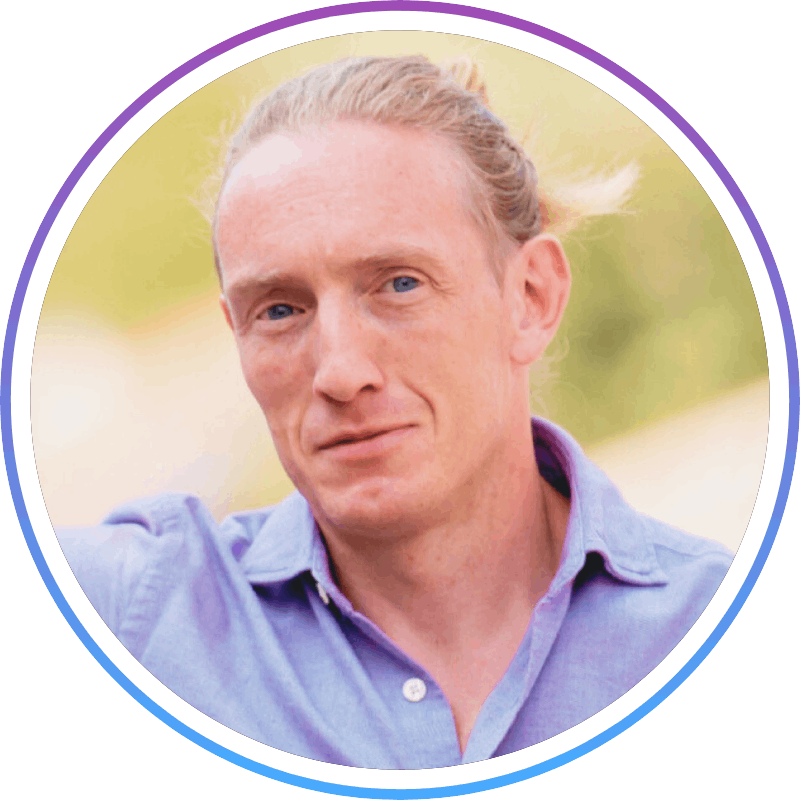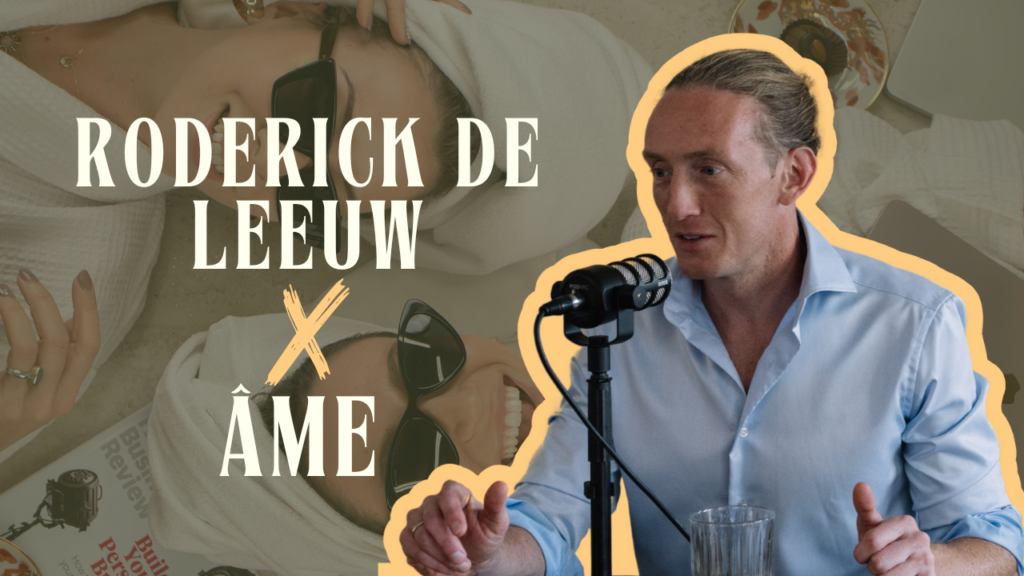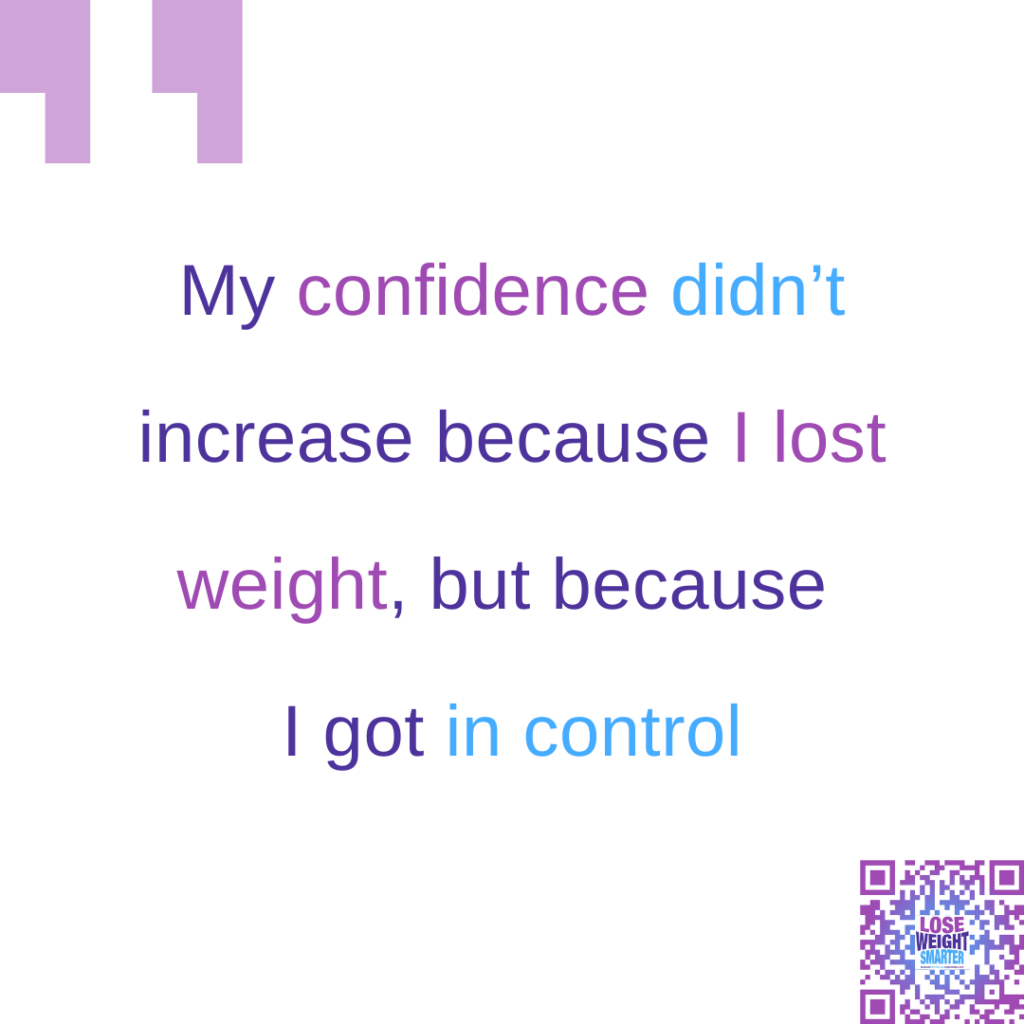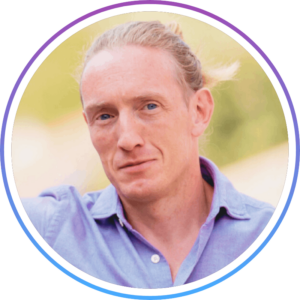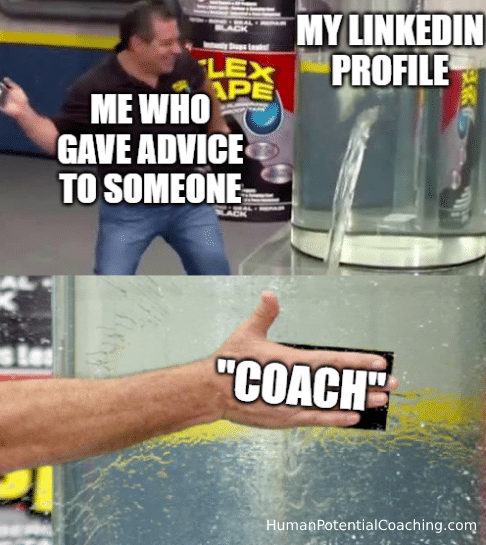
‘Everybody can be a coach nowadays’
Everybody
It’s a much heard statement. However, I disagree. I’ll explain you why.
Curriculum Erosion
To start with the obvious: ‘coach’ is not a protected profession.
This allows anyone with some experience who ever gave some tips to another person in their industry to ‘pimp’ their LinkedIn profile overnight. Especially, with today’s focus on superficiality, this is social media 101. The result is that the market is flooded with people people who are (part-time) coach all of a sudden.
To me, this isn’t a problem by definition as it might seem to indicate a trend where people want to help others make most out of their lives, as well as a potential market as others are interested.
However, you could argue that an education, accreditation and experience might be useful, as it does with many things in life that require specialism.
What isn’t coaching?
What most people – and even coaches with ‘certifications’ for that matter – fail to understand, is that coaching is not about giving people advice of aanbevelingen.
During every 1st conversation I have with (potential) clients, I always ask them to describe a ‘coach’. 9 out of 10 times they describe something that is called a ‘trainer‘, ‘mentor‘ or ‘consultant‘. These roles are very important, but they are distinctly different from coaching.
Why?
One of the main reasons is that they act from a position of what I call ‘knowledge dominance‘.
This is a great thing. Imagine you hire an expensive consultant who charges by the hour and you ask him ‘what should I do in this situation?’. What should be his reply? Pretty sure you expect something like:
‘Based on my experience at company Z & Y, I can say that it’s best to do Z.’
Every good consultant worth his or her money
If you’ve hired well, you now saved yourself a lot of time, energy and money.
The same concept applies to some degree for trainers. Even though some of them have first hand experience, it’s often not required. What is required though, is a sharp eye to assess the current situation, a vision on where to go and knowledge on how the trainee could achieve that.
This could then translate into the vision many people share when they think of a trainer: someone next to the field shouting what should be done. Relevant, but also not coaching.
What is coaching?
‘Partnering with clients in a thought-provoking and creative process that inspires them to maximize their personal and professional potential’
International Coach Federation
As you can see: there is nothing here about giving tips, sharing experience or telling the client what to do best. This doesn’t mean this isn’t possible, however, it’s not the focal point.
In order to help a person achieve their goals, it’s the role of a coach to help the client get clear on structureel goals and structureel approach that they believe will help them get there.
As you might feel, this means that a coach understands that a client knows this best. Nobody can tell you where you need to go and how to apply this to your life.
However, the answers are often buried deep down inside below layers of confusion, stress, limiting beliefs, insecurities and other noise.
It is the role of the coach to help the client get clarity and decide on a way forward that works for them. The coach is also there to continuously challenge the client and get as concrete as possible on the way forward in a way that fits the client’s life best.
How do I see coaching?
My reason for starting my first coaching education was to ‘be better able to convince others‘. However, I soon learned – as you might have done now as well – that this isn’t what coaching is about.
I don’t care about definitions, but about results. And at first I thought it would prevent that if I’d didn’t share all my great #lifehacks. I learned that I was wrong.
The result of telling a person what to do often is predictable:
- Person nods in agreement
- ‘Coach’ feels great about him/herself
- Person doesn’t make any changes
- ‘Coach’ is disappointed in other person
- Person feels guilty for not making changes
Even though good recommendations might sound like a great idea to progress quickly, this doesn’t take into account that it might not work for the other person’s situation. Or it might, but just not right now. It took some soul searching, but during one of my many training sessions this really ‘clicked’.
I realized that to me it comes down to a deep level of respect for the other person if I don’t tell them what to do. I will never know what’s best for that person to do. Only the client truly knows this (if you dig well enough).
‘It’s a deep form of respect to not tell a person what to do.’
Roderick de Leeuw
Therefore, I work both as a guide and a challenger for my clients. I try to help people understand what they truly want, but also continuously put a mirror in front of them to make sure the steps they defined to get there are indeed what will get them their long-term results.
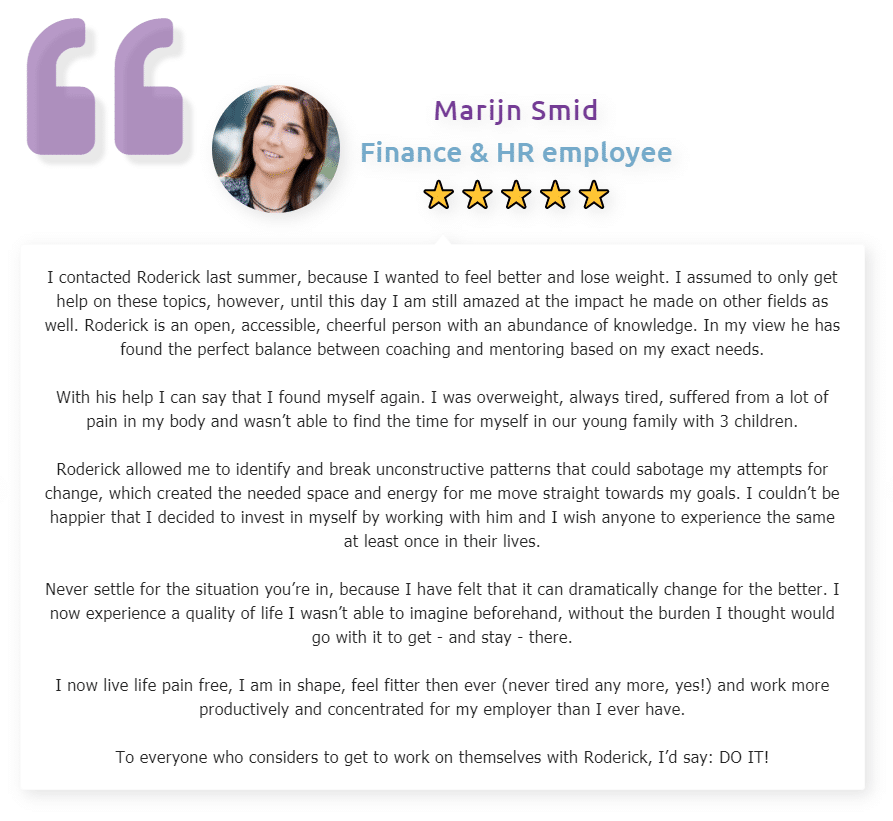
Read more about possible results here.
How do I fast-track the complicated topic of weight loss?
The topic of weight loss can get complicated quickly. Even though most believe it’s just about eating less and working out more, there is so much more to it than that. However, that is another 5 hour podcast all by itself.
Where my clients know best (often deep down inside) where they want to go, they don’t know all about the latest weight loss science, how it translates to their body or how to lose weight structurally in a healthy way.
That’s what I do.
Remember the example of the consultant? This is where I become one. However, only part-time.
Based on my years of experience, built knowledge and training I have created intricate models for various weight loss phases that help my clients smash their weight loss goals. If my clients should spend the same time to get to this point, I would be out of job – but they would probably be as well.
I have spent the time, so they don’t have to. Sounds like a consultant, right?
However, I also ask my clients to take an active role in this process and therefore I ask them many questions. When they go out to find the answers after our session, we make sure our next session is of much higher quality, as my client knows much more. This allows them to absorb the information better (there is already a ‘folder’ on their mental hard drive where the information lands) and ask better questions (I’m not sending data, we’re discussing it).
‘If my clients should spend the same time to get to this point, I would be out of job – but they would probably be as well. I have spent the time, so they don’t have to.’
Roderick de Leeuw
During a coaching trajectory I therefore start as a coach, but slowly transition to a part-time consultant.
This allows my clients to first get crystal clear about their goals, identify and then remove their limiting beliefs to create a strong foundation for change.
We then move to a more exploratory phase, where I help my clients to navigate the most important weight loss topics and create a deep – and mutual – understanding on how to move forward. All of my clients tell me that they are surprised of the amount of knowledge they learned, but also about the fact that they can explain it to others as well.
Next up is the actual gewichtsverliesfase where intricate models take over and provide continuous feedback, based on actual results.
Lastly, when the goals are reached, we move to a phase where I help my clients prepare their bodies to a more balanced lifestyle that is much less restrictive and easy to maintain in the decades to come.
Read more about my 5 weight loss phases here.
In summary
Slapping a title of ‘coach’ on every LinkedIn profile isn’t fair now we know the definition.
The process of guiding a person to understand what they truly want and how they believe they should get there is delicate. Therefore, I want to underline that it’s important that you always do this with someone you fully trust. Possibly, some professional accreditations can help you feel more comfortable with that, even though it’s also just part of a total picture.
However, coaching only works for specific purposes. As we discussed the difference between training, consulting and mentoring, it’s now clear what I mean when I say:
- Each of them have their purpose
- I move from coach om consultant during my program to match my clients needs
Lastly, I also hope it’s clear that when someone tells you what to do, you’re not being coached and chances for structural changes might be limited.
I hope this was helpful. If you have any questions or want to get to work on your weight loss goals, feel free to reach out.
